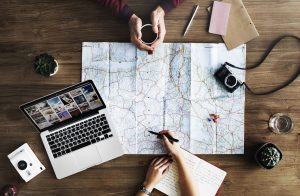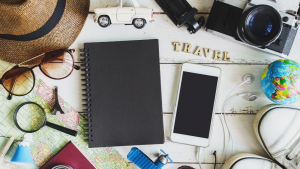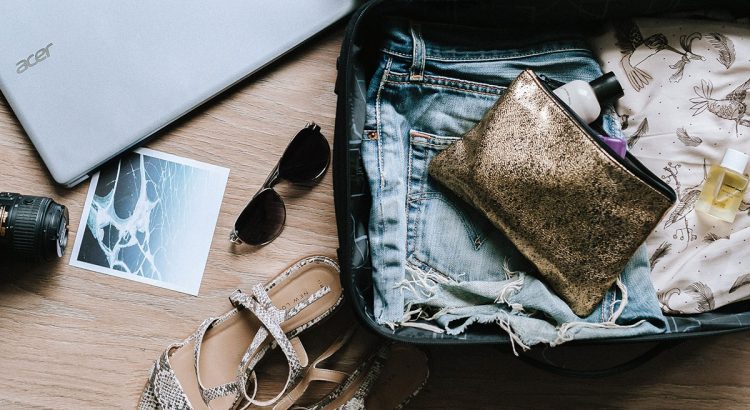Traveling is the act of moving from one geographic location to another for various purposes, including leisure, business, education, or humanitarian reasons. It is an exciting experience that offers an opportunity to explore new cultures, cuisines, sights, and sounds. However, traveling can be overwhelming if you are not adequately prepared. Therefore, it is essential to plan and pack smart to ensure a stress-free and enjoyable trip. In this article, we will highlight some of the things you need to prepare for when traveling, whether it’s a short domestic trip or a long international adventure. Read on to discover more.
Why Should We Prepare When Traveling?
Traveling can be one of the most exciting and enriching experiences of our lives. However, it can also come with potential risks and inconveniences that can ruin the entire trip if we fail to prepare. That is why preparing adequately before embarking on any trip is crucial.
One of the most significant reasons why preparation is vital when traveling is to avoid inconvenience. Delays and setbacks due to lack of planning, forgotten items, or unforeseen circumstances can be frustrating and stressful. By preparing a packing list, familiarizing yourself with the destination, and even booking your accommodation and transportation beforehand, you can eliminate these potential inconveniences.
Another critical reason to prepare is to minimize the risk of encountering unforeseen difficulties. Whether it is language barriers, cultural differences, visa requirements, or health risks, planning can help you better understand and manage these potential challenges. Additionally, having travel insurance and emergency contacts handy can give you peace of mind in case of any emergencies.
Preparing also has several advantages that can elevate the entire travel experience. By conducting research, you can discover hidden gems, local cultures, and authentic experiences while saving money and time. For instance, booking an Airbnb or a homestay can be an economical alternative to expensive hotels, while still allowing you to immerse yourself in the local culture.

Credit Cards and Bank Accounts
Credit cards and bank accounts are essential tools for anyone traveling, providing convenience and security when making purchases. They allow you to access your funds while reducing the need to carry large amounts of cash. However, it is crucial to prepare and research before your trip to ensure that you have the right cards and accounts to avoid fees, enjoy perks, and keep your finances secure during your travels.
Managing Your Credit Card Company
Traveling can be a lot of fun, but it can also be stressful, especially if you’re not prepared. One of the best ways to ensure a smooth and hassle-free trip is by managing your credit card company. Here’s what you need to do:
It’s essential to notify your credit card company of your travel plans, especially if you’re going to a foreign country. Credit card companies monitor your account for suspicious activity, so if they notice charges from a foreign country, they might freeze your account for security reasons. To avoid this inconvenience, inform your credit card company of your travel dates and destination countries.
Before embarking on your trip, check your credit card’s additional benefits to see what coverage it offers. Some credit cards provide coverage for canceled flights and lost bags, while others waive foreign transaction fees. Also, check if your credit card offers rental car coverage. Avail of these benefits and save money that you can use for more exciting activities.
Always carry backup credit cards and bank cards with you. You don’t want to be stranded in a foreign country without any access to your funds. Having a backup card with you will ensure that you can continue to enjoy your travels even in case of emergencies.
Debit Cards and Bank Cards
When traveling internationally, it’s important to consider the types of debit and bank cards you should bring with you. It’s not uncommon for a particular type of card to only be accepted in certain countries, so it’s a good idea to research before you leave. Here are some options you may want to consider:
Most people have at least one debit card that they use for everyday transactions. It’s a good idea to bring this card with you while traveling, but it’s also crucial to have backup options. Your debit card may only have certain capabilities while abroad, so consider speaking with your bank to learn more. Some banks offer international debit cards that allow you to withdraw money and make purchases without any issues
Similar to debit cards, bank cards are a valuable option to have while traveling. These cards are usually attached to a checking or savings account and may require a PIN or password to access. It’s a good idea to bring at least one bank card along with you on your trip, and just like with debit cards, be sure to have backup options.
Having backup debit and credit cards is crucial while traveling. If for some reason your go-to card declines or won’t work, it’s best to have other options. You may find that certain stores or restaurants only accept a certain type of card, so having a backup plan will ensure that you don’t miss out on any experiences.
Online Banking Tips for International Trips
When it comes to managing your finances while traveling internationally, online banking is a safe and convenient option. However, there are a few tips to keep in mind to ensure a hassle-free experience.
First and foremost, make sure you have access to your bank account online. Before leaving for your trip, log in to your online banking account to confirm that you have the necessary login credentials and that your account is in good standing. If you’re not sure if you have online banking access, contact your bank to verify.
The next step is to ensure that your bank’s website is secure by looking for the padlock icon in the URL bar. This indicates that the website is using a secure connection and that any information you enter on the site will be encrypted to protect your data from hackers and cybercriminals.
Setting up alerts for any purchases made on your account is also a wise move. This will allow you to stay on top of any fraudulent activity and take action quickly if necessary. You can set up alerts for large purchases, out-of-state transactions, or any other criteria that you choose.
Creating a budgeting plan for your trip is another essential element of managing your finances while traveling. Before you leave, estimate your expenses for things like transportation, lodging, food, and attractions. Then, set a daily or weekly budget that you can stick to throughout your trip to avoid overspending.
Finally, it’s crucial to regularly check your account to make sure there are no unauthorized transactions. The sooner you detect any issues, the easier it will be to resolve them and prevent further damage.
By following these online banking tips for international trips, you can have peace of mind knowing that your finances are secure and easily managed while you travel.
Documents Needed for Traveling
When traveling, it is essential to make sure that you have all the necessary documents with you. These include your passport, visa (if required), travel insurance, and other important documents that may vary based on your destination country. In this article, we will discuss the various travel documents that you should prepare before embarking on your trip.
Passport Requirements
When it comes to traveling internationally, having a passport is an absolute must. A passport is an important travel document that verifies your identity and citizenship and allows you to enter foreign countries. Here are some important requirements to keep in mind when it comes to obtaining and maintaining a passport.
To obtain a U.S. passport, you must be at least 18 years old. However, if you are under 18, you may still be able to get a passport with the proper forms and documentation, and with the consent of both parents or legal guardians.
To apply for a passport, you will need to fill out an application through the U.S. Department of State’s website or in person at an authorized passport acceptance facility. You will need to provide personal information such as your name, birth date, and social security number, as well as documentation such as a birth certificate, driver’s license, or previous passport. You will also need to pay a fee to process your application.
Passports typically remain valid for 10 years for adults and 5 years for minors under 16 years old. It’s important to note that some countries require that your passport is valid for at least six months beyond your travel dates, so it’s important to double-check your expiration date and any visa requirements before traveling.
Visa Requirements for Destination Countries
Traveling internationally offers an opportunity to immerse yourself in different cultures, try new cuisines, and experience new adventures. However, depending on your destination country, you may have to meet certain visa requirements before you can gain entry. Visa requirements can vary depending on the purpose of your visit and the length of your stay. Therefore, it is essential to research and understand the visa requirements before departing on any international trip.
The process of applying for a visa can be complicated and time-consuming. Therefore, it’s always best to check the visa requirements on official government websites or reputable visa service portals such as IVisa. Applying for a visa in advance allows for sufficient time for processing and reduces the risk of denied entry.
Failure to comply with the visa requirements can lead to denied entry or deportation. In some cases, even if you have a valid passport and your travel documents are in order, you may still be prohibited from entering a country if you don’t have the necessary visa. Therefore, it is crucial to familiarize yourself with the visa requirements of your destination country to avoid such situations.
Emergency Contact Information Form
When preparing for any trip, it’s important to plan for the unexpected. One way to do this is by filling out an Emergency Contact Information Form. This form should always be filled out before you embark on your journey to ensure that you are prepared for any emergencies that may arise.
The form should include important details about you such as your full name, date of birth, and emergency contact information. It should also ask for any relevant medical conditions or allergies that you may have so that medical professionals can quickly and accurately treat you in the event of an emergency.
Health Insurance Information Form
When planning your travels, it’s important to take proactive steps to ensure that you’re prepared for any medical emergencies that may arise. One crucial step in preparing for such situations is to have a Health Insurance Information Form readily available with all your necessary medical information.
A Health Insurance Information Form is a document that includes essential details about your health insurance policy, emergency contacts, physician information, allergies or medication information, and any other important medical information that could be crucial in the event of a medical emergency. This document is your lifeline in ensuring that medical personnel have all the necessary data to provide you with urgent medical care when you’re traveling away from home.
In the form, you should provide all relevant information about your health insurance company, including the name of the policyholder and policy number. Additionally, emergency contact information is vital to include, such as the names and phone numbers of family members or friends who can be contacted in case of an emergency.
Physician information is another important item to have on the Health Insurance Information Form, including the name and contact information of any healthcare providers that you regularly visit or any specialists you may require. Information regarding allergies or medication is also essential to provide in the form to assist medical personnel in providing you with the right treatment.
Why Do You Need ID To Travel
When preparing for a trip, it’s important to remember that having proper identification is crucial. Whether you’re traveling domestically or internationally, you’ll need a valid form of identification to prove who you are. In this article, we’ll explore why you need an ID to travel and the different types of identification you can use.
Reliable Fake ID Websites
As a content writer, it is important to note that we strongly discourage the use of fake IDs. However, we understand that some travelers may be interested in obtaining them for personal reasons. While using a fake ID is illegal and can have serious consequences, for those who choose to pursue this option, it is important to find a reputable website that produces quality fake IDs that are not easily detectable.
Finding reliable fake ID websites can be a tricky task as there are many scams and fraudulent sites out there. To ensure that you land on a reliable site, it is essential to conduct thorough research. One important step is to read customer reviews and assess their level of satisfaction with the products and services they received.
Secondly, check the website’s security features to ensure that the site is safe and can protect your personal information. A reliable website should use encryption measures to safeguard your data from hackers and other unauthorized persons.
Thirdly, it is important to examine the quality of the products offered. Aids in detecting fake IDs are becoming more advanced, and hence, a reputable fake ID website should produce IDs with the highest level of authenticity.

Packing List Essentials
A good packing list is essential for any type of travel, whether it’s a short weekend trip or an extended international adventure. With so many different items to consider, it’s easy to overlook some essentials. In this article, we’ll cover the essential items to include on your packing list, from travel documents and credit cards to clothing and toiletries. So, before you embark on your next trip, be sure to take a look at this comprehensive packing list guide.
Must-Have Items for Airplane Traveling
Airplane travel can be exhausting, uncomfortable, and stressful. However, with the right preparation, you can make your flight comfortable and hassle-free. In this article, we’ve put together a list of the must-have items for airplane traveling that can help you make your journey more comfortable and enjoyable.
1. Neck Pillows:
One of the most important items for airplane traveling is a neck pillow. Neck pillows help to keep your neck in a comfortable position, preventing neck strains and helping you nap better.
2. Water Bottles:
Staying hydrated during a flight is crucial, and carrying a refillable water bottle with you can help. It is important to drink plenty of fluids during the flight to avoid dehydration, headaches, or fatigue.
3. Noise-Cancelling Headphones:
The noise level in a plane can be unbearable, and that’s why having noise-canceling headphones is a game-changer. They help to block out all the noises around you, providing a better listening experience.
4. Comfortable Clothing:
Wearing comfortable clothing is key to making your flight bearable. Long flights can be tiring, and wearing clothes like leggings, sweatpants, or a cozy sweater can make a lot of difference.
5. Eye Masks:
Blocking out light is very important when you want to get some sleep on a flight, making an eye mask essential for every traveler. It helps to reduce the amount of light reaching your eyes, allowing you to rest more deeply.
Necessary Medications and Medical Supplies
When preparing for a trip, it is essential to pack any necessary medications and medical supplies to ensure a safe and healthy journey. Whether you are traveling short or long distances, it is important to plan and bring everything you need.
If you are taking prescribed medications, be sure to bring enough for your entire trip, including extra in case of unforeseen circumstances. Make a list of all medications, including their daily dosage, and set an alarm to remind you of when to take them. It is also recommended to keep the medications in their original packaging, which can help avoid any issues with airport security. Carry your medications in your carry-on luggage so that you have them accessible during your flight.
It is important to note that some countries may have restrictions on what medications they allow, so it is advisable to check the entry requirements for your destination country beforehand. If you have any concerns or questions about your medications or medical supplies, consult with your healthcare provider before you depart.
Clothing and Accessories You Should Bring Along
When preparing for any type of trip, it is important to pack the right clothes and accessories to ensure that you are comfortable and prepared for any situation. Here are some essential items that should be included on your packing list:
1. Lightweight clothing – Pack clothes that are versatile and can be layered, like a lightweight jacket or cardigan. This is important in case the weather changes during your trip.
2. Comfortable shoes – Opt for comfortable walking shoes, like sneakers or hiking boots, that are suitable for the activities you have planned.
3. Rain jacket – Always pack a rain jacket or poncho to stay dry in case of unexpected rain.
4. Travel apps – Download travel apps that can help you with language, directions, money conversion, and digital journaling.
5. Jewelry – Pack jewelry that can be organized in a small cube or sac to help you stay organized.
Conclusion
To summarize, preparing for a trip is crucial in ensuring a stress-free and enjoyable experience. Packing lightweight, versatile clothing, comfortable shoes, and a rain jacket are essential items to include in your luggage. Additionally, downloading travel apps and packing important items such as jewelry, sunglasses, and electronic devices can help keep you organized and prepared for any situation.





